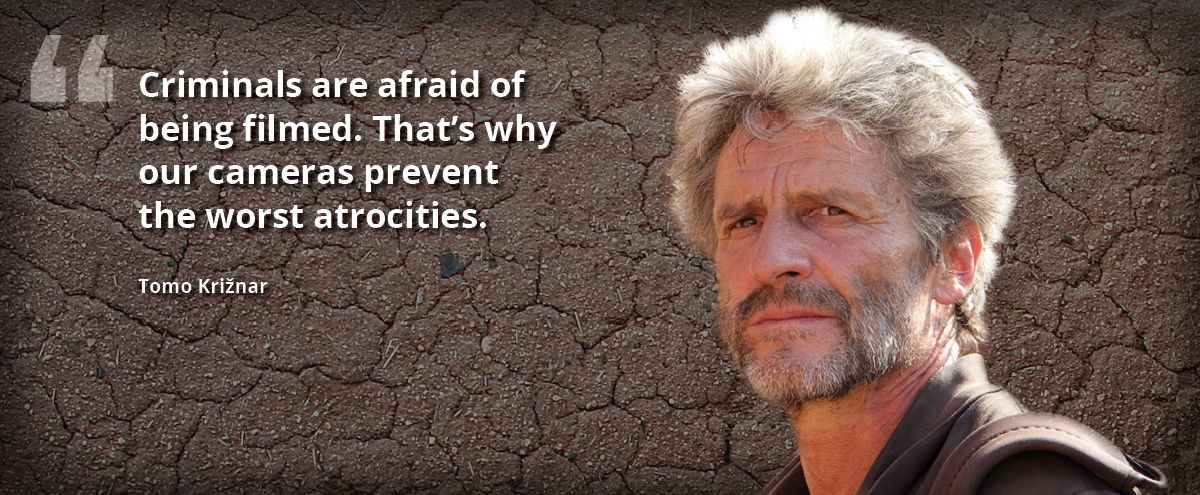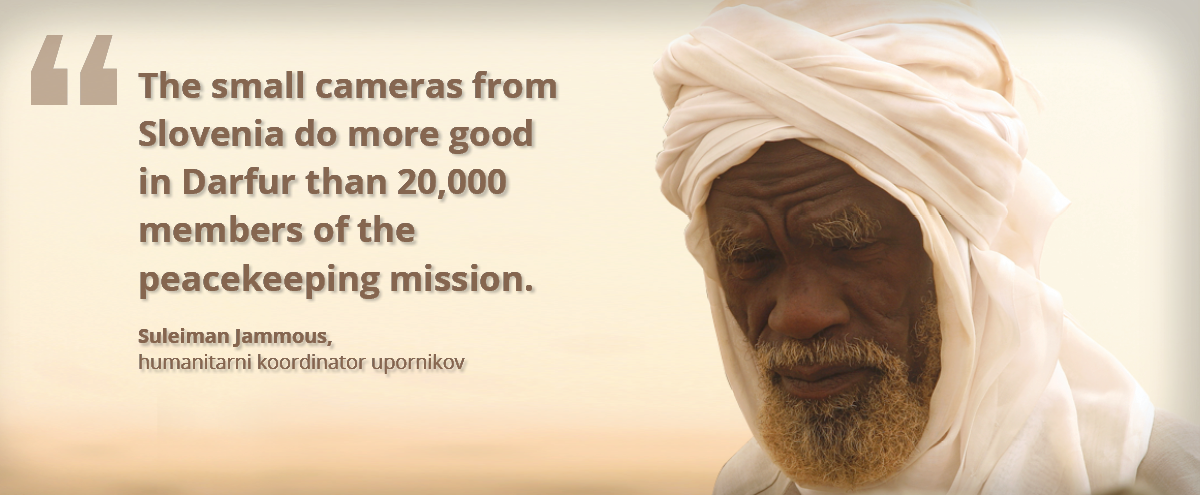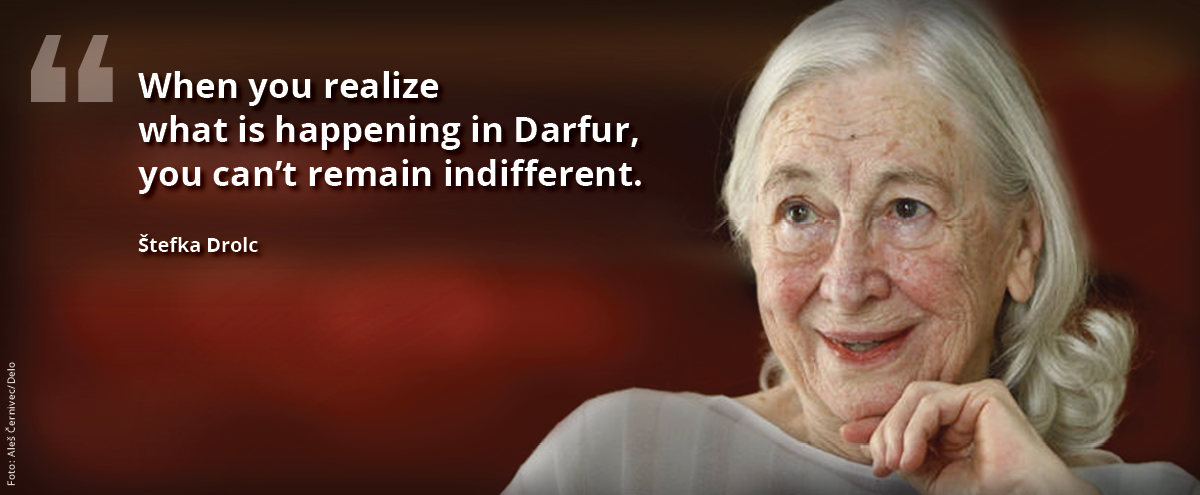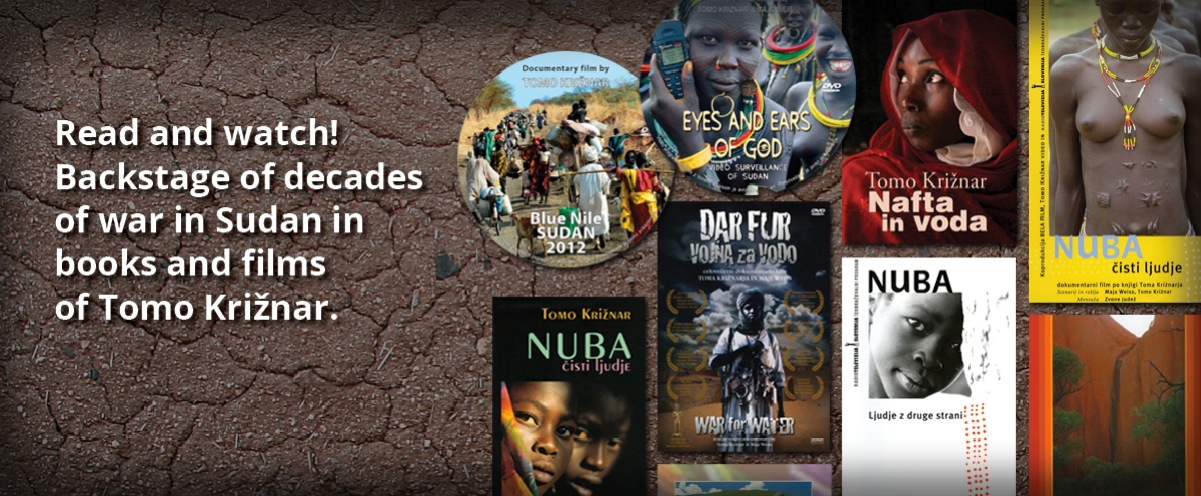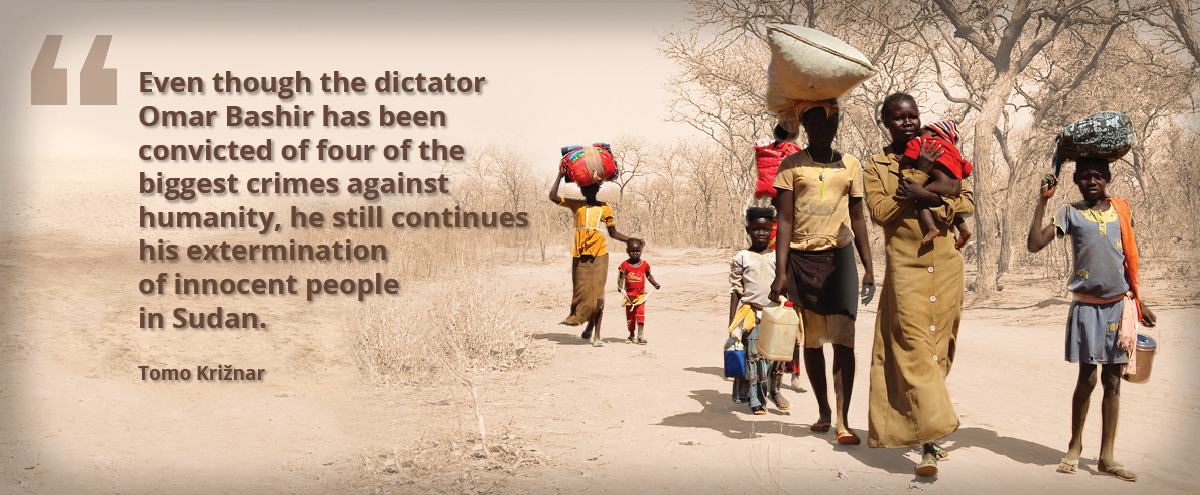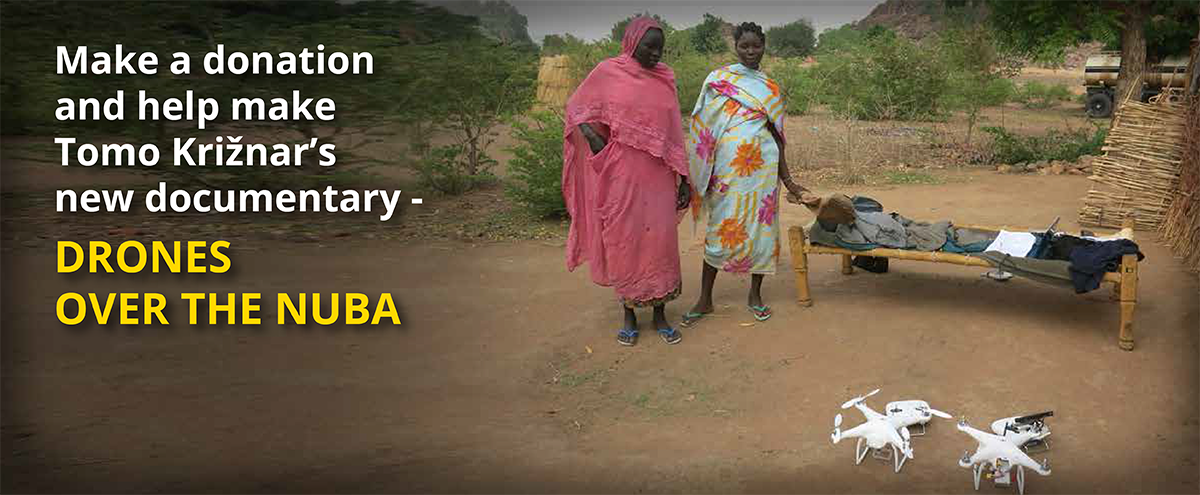H.O.P.E. products
You can support the indigenous Sudanese peoples by buying handcrafted products they make. Undoubtedly the most popular are their good luck and safety amulets, made by their shamans. You can also donate for Sudanese necklaces, the book Three Witches (Tri čarovnice), a calendar created by H.O.P.E., or greeting cards created by Nina Meglič. You can also contribute to projects aimed at helping the Sudanese (TO PROJECTS) by purchasing Tomo Križnar’s books or films.
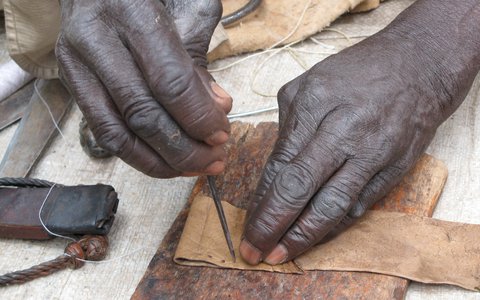
In Darfur, almost everyone wears at least one good luck amulet called a hijab. Some people wear a hundred of them or even more – around their neck, arms or waist. People believe these amulets help them survive, protect them from evil and bring them luck. They’re made from camel leather by kujurs, the village shamans.
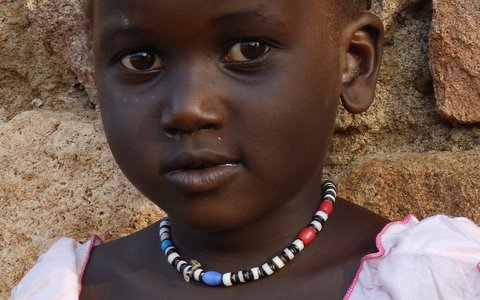
We bought the necklaces from Sudanese women and girls for a fair price, thus helping them improve their families’ budgets. All necklaces are handmade, crafted with love and dedication. Wearing them will make you feel great because they’re beautiful and because you’ll have done something good.
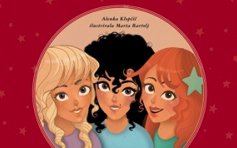
The publishing house Eko knjiga has published three books featuring three teenage sisters with magical powers. Read about their interesting adventures in How the Lake Disappeared, How the Water Disappeared, and How the School Disappeared.
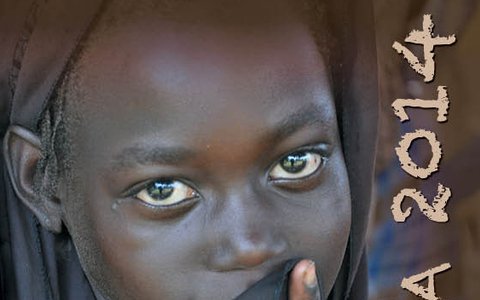
The calendar is a product of the combined efforts of humanitarian Tomo Križnar and the H.O.P.E. organization. Through children’s drawings, it gives you the opportunity to see how kids perceive the situation in the Nuba Mountains. The documentary photos in the calendar show the lives and kindness of people.
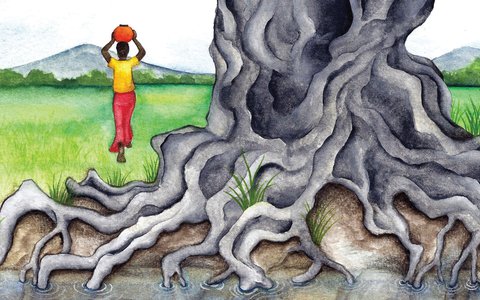
“Even a small act of kindness can bring great happiness to the person who receives it. We can’t all be volunteers or work for non-profit charity organizations, but we can at least support charity in different fields,” says Nina Meglič, the initiator of the campaign and author of the greeting cards.
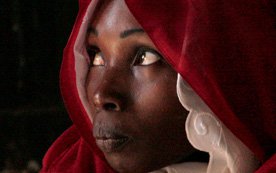
Tomo Križnar was gathering material for this book for 30 years. It depicts climate change in the Sahel and the local wars for water, which foreign forces use for their own wars for oil and other natural resources.
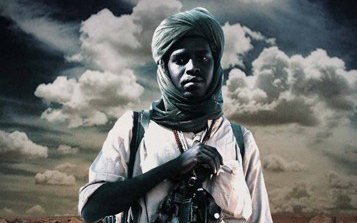
This documentary tells the story of an unsuccessful peace initiative by the late Slovenian president Janez Drnovšek in the war-affected areas of Sudan, which Tomo Križnar tried to carry out.
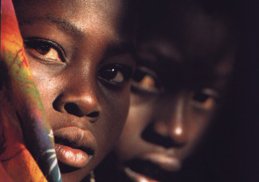
The Nuba are an indigenous African people who managed to preserve genuine human values because of their life in an inaccessible place. They are a healthy and happy people.
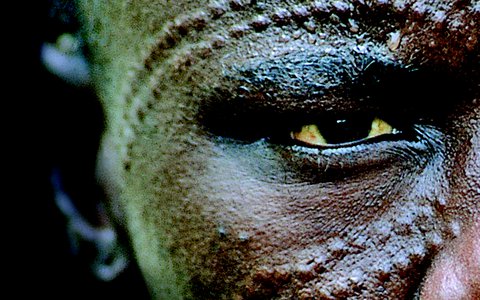
Tomo Križnar, together with the humanitarian coordinator of the Darfur rebels, Suleiman Jamous, and the founder of the H.O.P.E. organization, Klemen Mihelič, delivered more than 400 cameras to volunteers in the war zones of Sudan between 2009 and 2012.
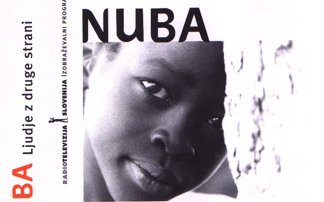
This is a documentary about a humanitarian expedition in 2010 that, in the midst of the biggest offensive by the Sudanese army, dared to cross the border on its own account and without permits to reach the victims of the longest lasting war in Africa.
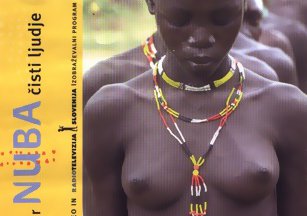
The Nuba people, ninety-nine black African tribes in the Nuba Mountains in the Sudanese province of South Kordofan, have been under siege by the Sudanese army for fifteen years.



